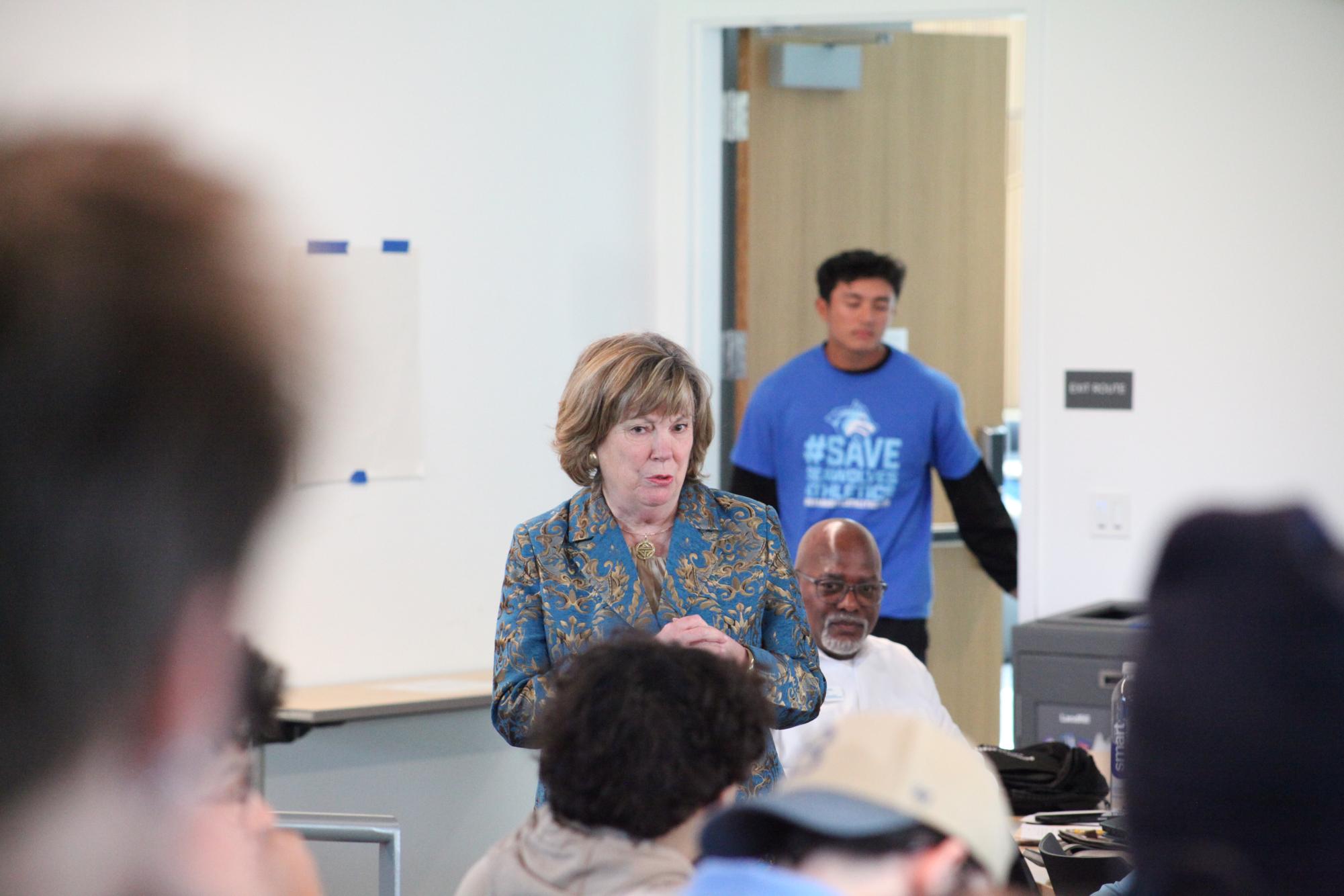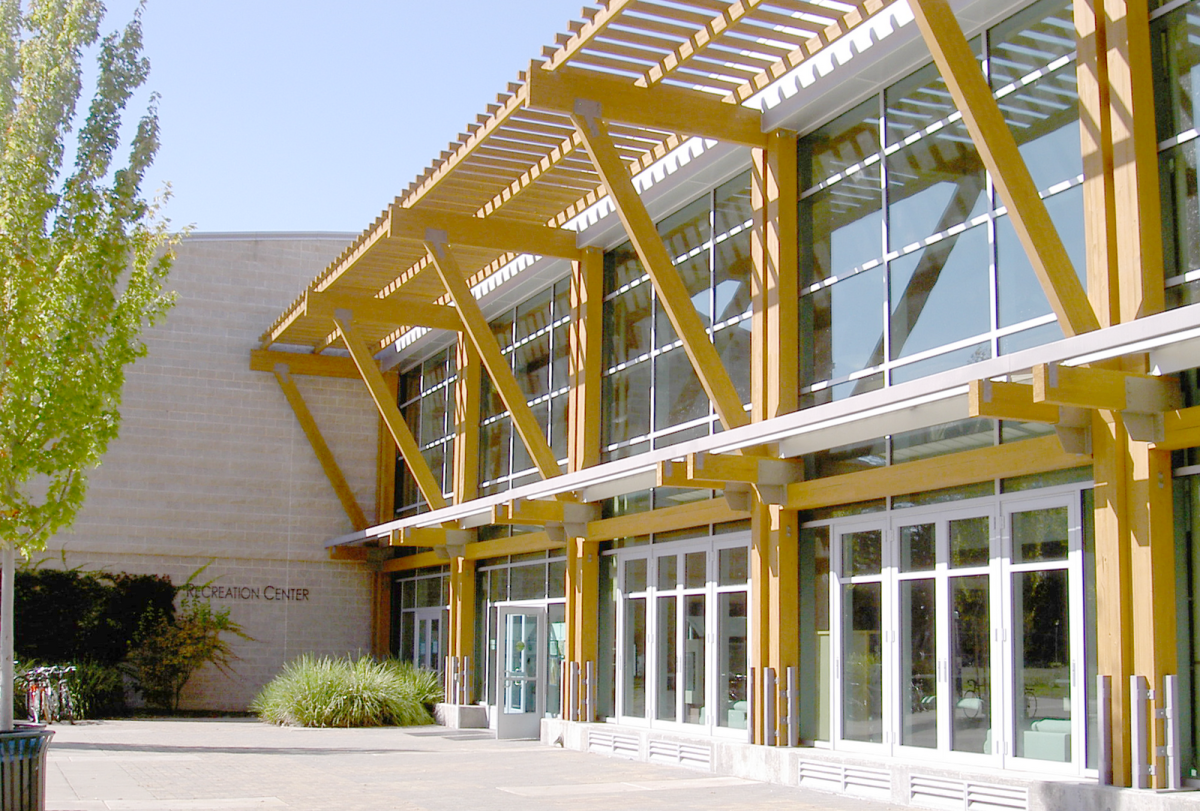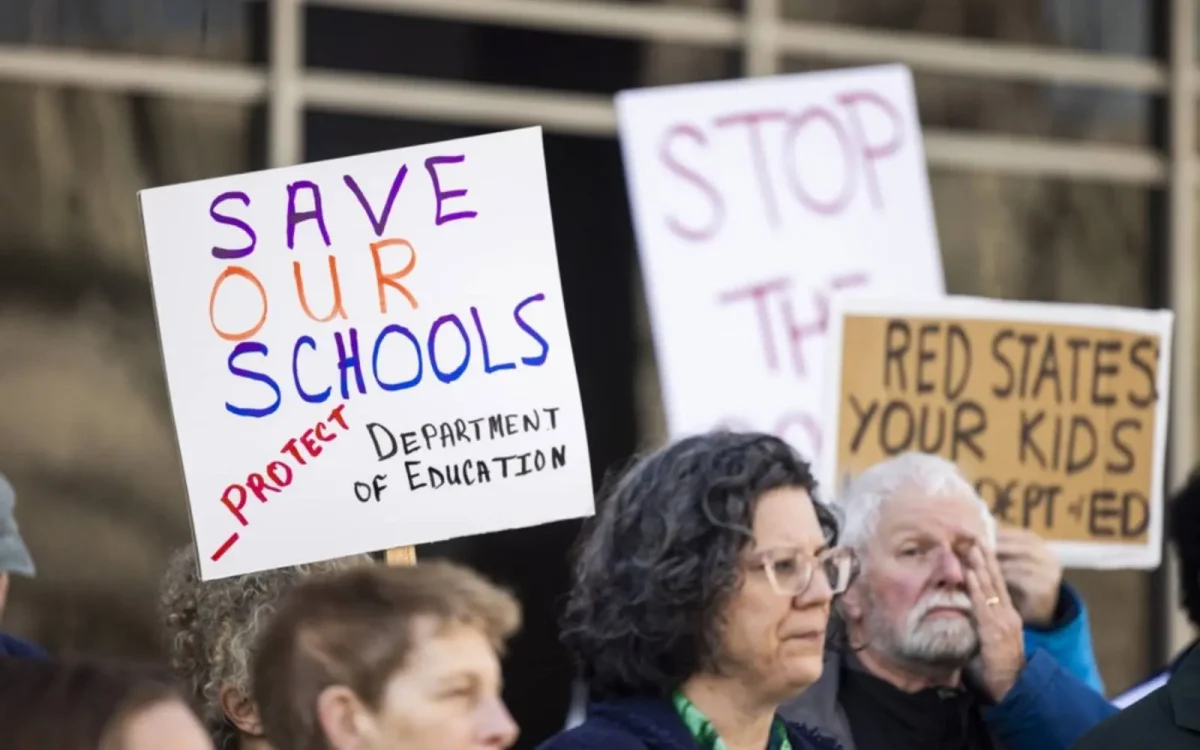In a secret ballot vote, the Academic Senate passed a resolution to move forward with a no-confidence vote for Sonoma State administrators and the CSU chancellor.
The vote was 15-3, with the resolution passing. A referendum will now be put out allowing the whole Sonoma State faculty body to vote no-confidence against Interim President Emily Cutrer, Provost Karen Moranski, and CSU Chancellor Mildred Garcia. During the vote they will have the option to choose who specifically they vote no-confidence for, or the option to vote no-confidence on all three. Voting is slated to begin on April 14 and end on April 16.
“I think it’s great,” said Marcus Ziemer, Sonoma State Men’s Soccer Coach who was in attendance at the senate meeting, “I think people should be heard. And if the president, the provost, and the chancellor have support, then they’ll survive. But if people are upset with the lack of leadership, they’ll get a no-vote.”
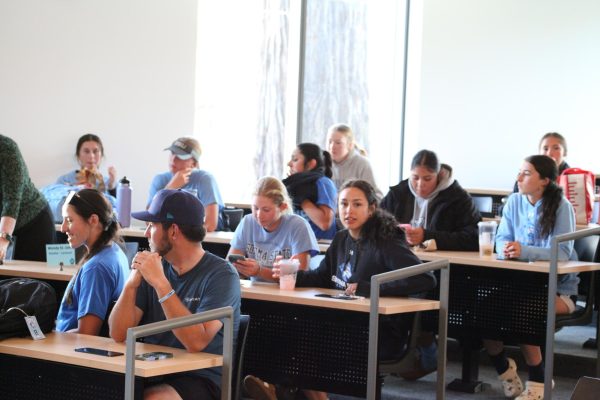
During the voting period, there will be opportunities for public comment according to the Academic Senate.
After passing, the resolution was released publicly. The resolution cites six main reasons to call for a referendum of no confidence for the chancellor, provost, and president. The reasons stated are budgetary mismanagement, poor financial practices, instability and failure of leadership, general violations of shared governance, attempts to subvert SSU’s discontinuation policy, and reputational damage to SSU and erosion of its core mission.
On April 3 in Stevenson Hall, the Academic Senate met to discuss and debate the resolution. The room was filled with around 100 people, including many student athletes who stood in the back wearing their blue Sonoma State Athletics shirts.
Administrators also attended the meeting to make reports. During her report, Interim President Cutrer said the search for a new president was “forthcoming.” She also said that a draft for the “move forward” plan, the same plan requested by state legislators during the February 21 legislative session, was being finalized and would soon be posted publicly for comment by the community for revision.
The “move forward” plan was requested by state legislators within 30 to 60 days of the session.
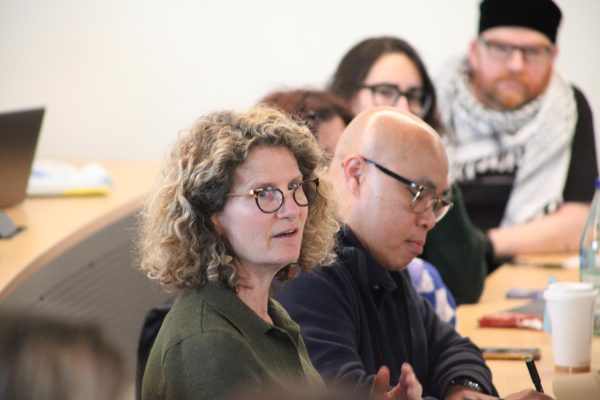
The “move forward” plan is expected to demonstrate how the administration will increase enrollment and maintain financial stability post-cuts. The Academic Senate meeting took place 33 days after the legislative session, with 27 days left to submit a finalized plan.
During the Academic Senate, Sonoma State Mathematics Professor and the California Faculty Association chapter president Elaine Newman argued in favor of the senate voting to pass the no-confidence resolution.
“Our budget is a moral decision,” said Newman, “We need leaders whose plans for the budget align with our mission.”
Newman stressed how the senate needed to “take sides” due to the projected 130 faculty and staff losing their jobs in the fall, along with the student impact.
During her report Provost Moranski said information about “teach-out” plans for students affected by program cuts have started to be distributed. However, members of the Academic Senate raised concerns about this decision, as their policy requires teach-out plans to be approved by the Senate. Since the programs being cut have not yet received Senate approval, this process is in question.
In response, Moranski said “It’s irresponsible of us, from the student perspective, to not advise students based on the budget plan.”
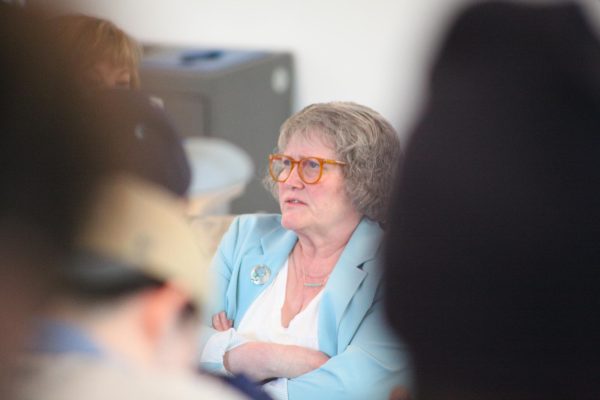
Following the Academic Senate, when asked about her thoughts on the no-confidence resolution being passed, Provost Moranksi said “No comment.”
While the vote passed 15-3, it was not without tension or disagreement. While Newman was speaking, one person cursed her out before abruptly leaving the senate meeting. Discussions about making the vote a secret ballot led to numerous disagreements regarding the reasons for keeping the vote anonymous.
Edward, a third year English major who was in attendance, described the senate as “chaotic.” Edward agreed to comment under the condition that his last name not be used.
“I don’t know if senate meetings are usually like that, but I am interested in attending more,” Edward said.


